Share
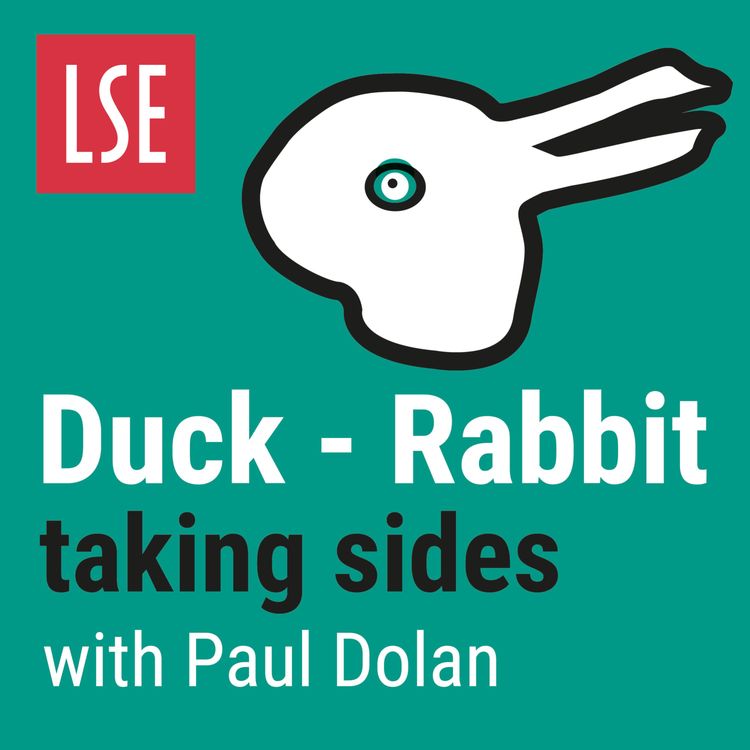
Duck - Rabbit
Freedom of speech
Professor Paul Dolan asks if it’s ok to cancel someone for something they say or post on social media. Should freedom of speech and expression be protected at all costs – and how do we balance it with protection from bullying and hate?
He speaks to two people with different opinions. Matthew Syed is a writer and journalist. He is a staunch defender of free speech. Ash Sarkar is a journalist and senior editor at Norvara Media. She believes that cancel culture is exaggerated by the right.
Paul also speaks to Shakuntala Banaji, a professor of media and communications at the LSE, about why this issue has become so polarised. He’s also joined by his sidekick Rory Sutherland, vice chair of the advertising agency Ogilvy.
A Mother Come Quickly Production
More episodes
View all episodes
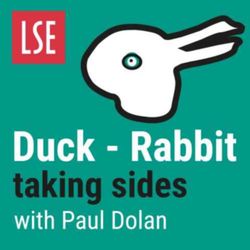
4. Why do we disagree?
25:33||Season 2, Ep. 4In this bonus episode, recorded in front of a live virtual audience, Professor Paul Dolan and his guests discuss the neuroscience and social science behind the polarisation problem. Why do we take sides on so many issues? What makes us want to be part of one group and not another? What drives our judgements, choices and assumptions? Paul was joined by his LSE colleague Dr Jennifer Sheehy Skeffington, and fellow academics Dr Lasana Harris from University College London, Professor Anil Seth from the University of Sussex, and Dr Tiffany Watt Smith from Queen Mary University. A Mother Come Quickly production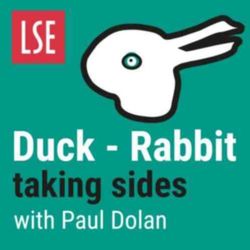
3. Why do you care if I have pineapple on my pizza?
43:15||Season 2, Ep. 3In this episode, Professor Paul Dolan looks at why we like to take opposite sides - from food to football clubs, and politics to pizza – and why we find it difficult to accept differences of opinion. He speaks to two people who know a lot about polarisation and how to help people see things from the other side. One of them is Lord Gus O'Donnell who was Cabinet Secretary under Labour and Conservative governments and who was instrumental in helping the Liberal Democrats and the Conservatives form a coalition government. The other is Dr Nick Chater, who is a Professor of Behavioural Science at Warwick Business School and who advises on climate change policy. Paul’s also joined again by his friend and colleague Dr Kate Laffan. A Mother Come Quickly production.
2. To live longer - or better?
44:09||Season 2, Ep. 2In this episode, Professor Paul Dolan examines what the last year has taught us about life’s only certainty: death. Has it changed how we think about the lives of older and younger people? Do we want to live longer, or better? He speaks to two people with different views: Brendan McCarthy works who for the Church of England, and the cancer specialist Dr Karol Sikora. He also hears from two academics who have done research into the subject - Professor Aki Tsuchiya from the University of Sheffield and Amanda Henwood, a PhD student from the LSE. He’s also joined again by his friend and colleague Dr Kate Laffan. A Mother Come Quickly production
1. Is it better to be born a girl or a boy?
45:24||Season 2, Ep. 1In this episode, Professor Paul Dolan looks at gender differences. He talks to the men’s rights activist, Erin Pizzey, about why she thinks life is tougher for men and boys, especially at school. He’s also joined by Caroline Criado Perez, author of “Invisible Women”, about how the world is built by men for men. Paul hears from fellow LSE academic Dr Sam Friedman about the intersection between class and gender, and also talks to his friend and colleague Dr Kate Laffan. A Mother Come Quickly production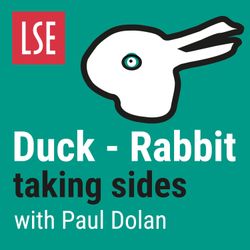
5. A question of class
39:23||Season 1, Ep. 5Professor Paul Dolan examines whether class is fundamental to how people see themselves and whether we want a classless society. He speaks to two people who come from very different backgrounds. Lily Russell-Stracey went to an exclusive boarding school and a top university – and is now a plumber in Glasgow. Dr Wanda Wyporska comes from a working-class background and was raised by a single mum. She went to Oxford University and is now Executive Director of the Equality Trust.Paul also speaks to Dr Sam Friedman from the LSE who wrote The Class Ceiling: Why It Pays to be Privileged. He’s also joined by his mate Rory Sutherland, vice chair of the advertising agency Ogilvy. A Mother Come Quickly Production
4. Fit or fat: who cares?
35:58||Season 1, Ep. 4Professor Paul Dolan looks at how we have becoming increasingly polarised in what we do to our bodies. Some of us getting fitter whilst most are getting fatter. The polarisation extends from our own behaviour to the judgements we make. We celebrate the fit and chastise the fat.Paul speaks to two very different people to find out how they live their lives and how they are judged. Nick Butter is an endurance runner who has run a marathon in every single country in the world. Bruce Sturgell is a plus size model who set up a website for large men. Who is happier? Paul also speaks to Jet Sanders, a behavioural scientist from the LSE, about why we judge. As always, he’s joined by his friend Rory Sutherland, vice chair of the advertising agency Ogilvy. A Mother Come Quickly Production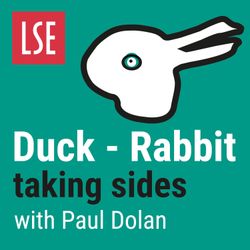
2. Security and Liberty
36:50||Season 1, Ep. 2Professor Paul Dolan asks if more security means less freedom? Has the pandemic fundamentally changed our relationship with the state and what it can tell us to do? He speaks to two people with very different views on these questions. Steve Baker is the Conservative MP for Wycombe and Deputy Chair of the Covid Recovery Group B, and Graham Medley is an infectious disease modeller at the London School of Hygiene and Tropical Medicine. Paul also speaks to Julia Black, Professor of Law at the LSE, about what implications our experiences of the past year might have on the future. He is joined by his friend Rory Sutherland, vice chair of the advertising agency Ogilvy. A Mother Come Quickly Production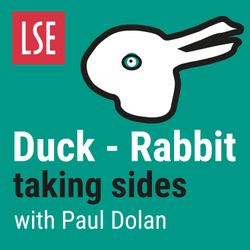
1. Relationships - marriage and monogamy
35:20||Season 1, Ep. 1Marriage and monogamy: Are single women happier? Professor Paul Dolan looks at relationships and the judgements people make, specifically when it comes to women. Why do people have such strong views on how women choose to live their lives? Why is marriage and monogamy still seen as the ultimate fairy tale? Paul speaks to two women who have made very different life choices. Esther Rantzen was married twice to the same man and takes great joy in her family whereas Joan DelFattore has always been single and has never seen herself as a wife or mother. Paul also speaks to behavioural scientist Dr Laura Kudrna about why it's a subject that polarises people. And he’s joined by Rory Sutherland, vice chair of the advertising agency Ogilvy. A Mother Come Quickly production